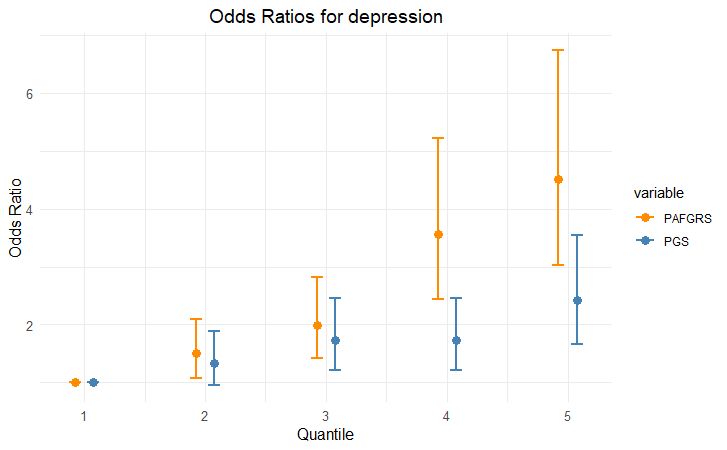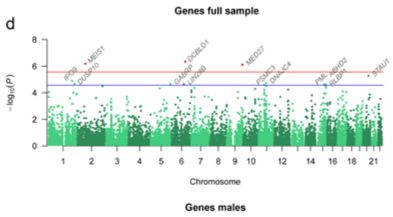This project was supervised by Emma Pruin and Wouter Peyrot, and we hope to publish the results soon!
Thanks to NESDA, NTR, and the participants who made this possible. 🙏
#genetics #depression #mentalhealth #NESDA #NTR #rGE #familydata
This project was supervised by Emma Pruin and Wouter Peyrot, and we hope to publish the results soon!
Thanks to NESDA, NTR, and the participants who made this possible. 🙏
#genetics #depression #mentalhealth #NESDA #NTR #rGE #familydata
Why does this matter? It suggests genetic risk may influence the likelihood of experiencing trauma—not just how we respond to it.
This helps explain why trauma isn’t always purely environmental.
Why does this matter? It suggests genetic risk may influence the likelihood of experiencing trauma—not just how we respond to it.
This helps explain why trauma isn’t always purely environmental.
Turns out, PA-FGRS was associated with higher exposure to emotional neglect and abuse, especially in those without a depression diagnosis.
PGS showed no such pattern.

Turns out, PA-FGRS was associated with higher exposure to emotional neglect and abuse, especially in those without a depression diagnosis.
PGS showed no such pattern.
We looked at two ways of measuring genetic risk:
🔹 Polygenic scores (PGS)—based on DNA markers
🔹 Family-based scores (PA-FGRS)—based on diagnoses in parents and siblings
Both predict depression—but only one predicted trauma exposure.

We looked at two ways of measuring genetic risk:
🔹 Polygenic scores (PGS)—based on DNA markers
🔹 Family-based scores (PA-FGRS)—based on diagnoses in parents and siblings
Both predict depression—but only one predicted trauma exposure.
I used data from the Netherlands Study of Depression and Anxiety (NESDA)—a rich dataset including genetic profiles, family history, and self-reported childhood trauma from over 1,400 participants.
I used data from the Netherlands Study of Depression and Anxiety (NESDA)—a rich dataset including genetic profiles, family history, and self-reported childhood trauma from over 1,400 participants.
We know that both genes 🧬 and environment 🌍 contribute to depression. But what if they interact in subtle ways?
This is known as gene–environment correlation (rGE)—and it might help explain why some risk factors seem more common in those already at genetic risk.
We know that both genes 🧬 and environment 🌍 contribute to depression. But what if they interact in subtle ways?
This is known as gene–environment correlation (rGE)—and it might help explain why some risk factors seem more common in those already at genetic risk.


